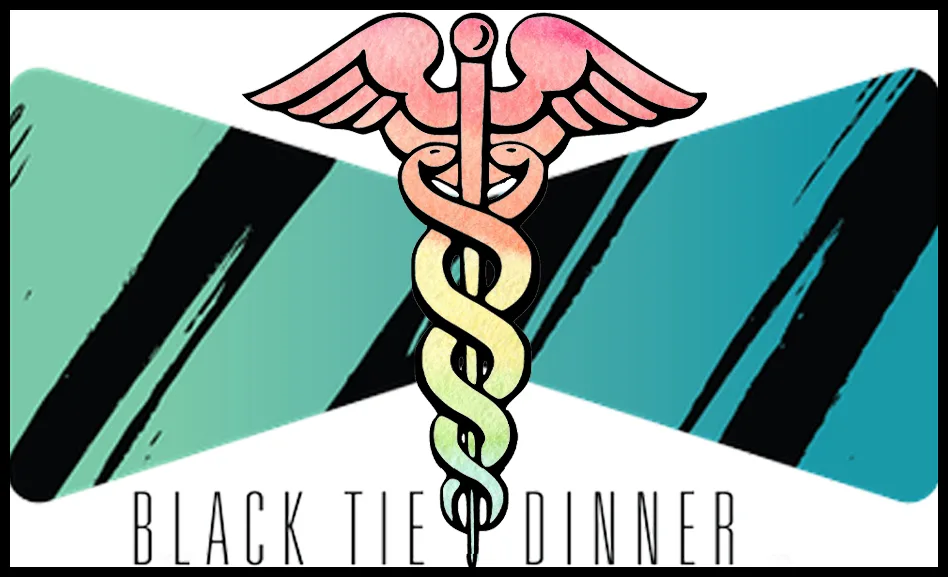
 March is LGBTQ+ Health Awareness week, and this week — March 18-22 — is National LGBTQ+ Awareness Week. March is also Bisexual Health Awareness Month; Wednesday, March 20 is National Native HIV/AIDS Awareness Day, and Sunday, March 10 was National Women and Girls with HIV/AIDS Awareness Day.
March is LGBTQ+ Health Awareness week, and this week — March 18-22 — is National LGBTQ+ Awareness Week. March is also Bisexual Health Awareness Month; Wednesday, March 20 is National Native HIV/AIDS Awareness Day, and Sunday, March 10 was National Women and Girls with HIV/AIDS Awareness Day.
And this week, with the focus so squarely centered on LGBTQ health issues, the leaders at Black Tie Dinner wanted to take a moment to brighten that spotlight and bring those health issues even further to the front of the community’s awareness.
This year marks 42 years since the onset of the AIDS crisis in this country, and yet, more than four decades later LGBTQ patients in the U.S. — whether dealing with HIV or some other health issue — continue to face significant barriers in accessing treatment, as statistics compiled by Black Tie clearly show:
- 8 percent of lesbian, gay and bisexual patients report that a doctor or other healthcare provider refused to see them because of their actual or perceived sexual orientation.
- 29 percent of transgender and nonbinary patients reported being refused by healthcare professionals due to their actual or perceived gender identity.
- LGBTQ people of color report higher rates of abuse by healthcare professionals than do their white peers.
- 41 percent of LGBTQ people living outside a metropolitan area said if they were to be turned away from one hospital, it be “very difficult” or even “not possible” to get treatment at an alternative hospital, (possibly because no other hospitals are within a reasonable reach).
- Of those who did find alternative care locations, 29 percent reported having to travel 25 miles or more to receive care.
- 8 percent of all LGBTQ people report avoiding or postponing needed medical care because of disrespect or discrimination by healthcare staff.
- The percentage of trans folks who avoid or postpone healthcare because fear of disrespect or discrimination by healthcare staff rises to 22 percent.
- 34 percent of LGBTQ people live below the federal poverty level, and 30 percent report having difficulty paying medical bills within the last 12 months.
- Providers serving the LGBTQ community report high levels of burnout, staff shortages and staff retention issues.
For the volunteers at Black Tie Dinner, those statistics present a challenge that they believe must be met and overcome, and, they note, Black Tie worked throughout its history to support equitable access to healthcare.
Dustin Vyers, Black Tie’s 2024 senior co-chair, said this week, “”Black Tie Dinner has been funding advances in LGBTQ+ healthcare since 1984;42 years later, the LGBTQ+ community still faces barriers to access quality treatment. We will continue to fund health-related beneficiaries until those barriers are lifted.”
Junior Co-Chair Liliana Villareal added, “Black Tie Dinner and our beneficiaries are grateful to every sponsor, table host and donor who pitches in to meet these needs, and we need more supporters to join the cause and help end healthcare inequities for our LGBTQ+ neighbors.”
According to a press release this week, Black Tie officials “estimate that at least 20 percent of our $30 million distribution total — roughly $6 million — has benefitted health-related nonprofits. That includes having supported Resource Center since the early 1980s when both organizations were founded.
In 2023, the press release notes, Black Tie distributed more than $350,000 to health-related organizations serving North Texas and beyond that provide services ranging from HIV prevention and support, sexual health, gender-affirming care, behavioral health care, LGBTQ-competent primary care and telehealth services and insurance subsidies.
That $350,000 total included $25,280 to first-year beneficiary Texas Health Action. That donation “fills a gap in the needs of the historically under-served intersex population,” and it helps “bridge the gap for patients who can’t afford their medication.”
Samuel Partida, a bilingual patient advocate with Texas Health Action, said, “The funding from Black Tie Dinner helps us advance sexual health and wellness for Texans. We have some innovative programs, and one of those is our burgeoning intersex program.”
Black Tie officials are already hard at work to make sure that the 2024 dinner continues that tradition; nearly one-third of the 2024 beneficiary applications offer health-related services to the LGBTQ community in North Texas and beyond, including several first-year applicants, according to the press release. The names of the organizations chosen as Black Tie beneficiaries for 2024 will be announced March 25.
— Tammye Nash

